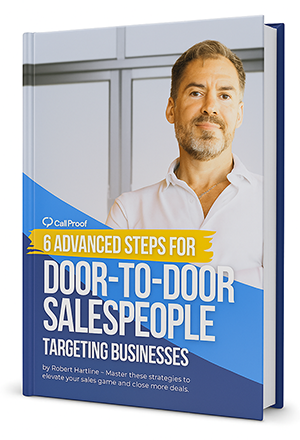We’re told in simple terms and lengthy quotes that words carry the authority to influence others, often much more than intended. But what about sales? Does the way you say something make a difference? Of course it does.
The problem is we fall into the ruts of using the same sales phrases pitch after pitch. And often, the phrases we use the most are the ones that sabotage our sales.
If your numbers aren’t as high as you think they should be, maybe you’re guilty of using one of these, dare we say “stupid,” phrases that create challenges which just shouldn’t be there.
The good news is, once you pinpoint the habit, you can turn it around with some easy alternatives.
1. When can you sign the contract?
Who really wants to sign a contract? Nobody. If you bring up this phrase, you’re creating a challenge that doesn’t have to exist. The word “contract” creates anxiety because it is a power word. Don’t put a spotlight on it.
Instead say something like, “When you get a chance, do you mind signing this so we can get the ball rolling?”
It’s not about sugar coating the contract, but rather not making it more significant than it has to be. When people make too many decisions, they can get “decision fatigue” and just stop deciding anything after a certain point.
Related: A Day in the Life of a Successful Salesperson
So try not to make the contract a big decision point. When it’s in the natural flow of your conversations, it becomes less of a crisis and you’re more likely to get the commitment.
2. When can you meet?
Don’t ask. Again, it’s another decision that becomes too big. It’s too open-ended and too vague.
Instead have a few time options in your back pocket. Suggest, “How about Thursday at 3?”
Now, they just have to say yes.
3. This isn’t a sales call.
People automatically assume you’re lying when you plug in this phrase. A different approach puts you and your prospect on much better terms.
Instead discuss their pain point directly. You can say, “Hey, I just want to get some time with you to cover how our clients have founds savings in (pain point).”
Or you can be even more direct and say, “You guys have been listed as one of our perfect candidates. We know you’re spending way too much money on (pain point).”
Once you uncover the pain, you know how to sell. Just go ahead and talk about how you’re going to fix the problem.
4. Is this a good time?
When you ask this question, you give the prospect an easy way out. They’re more likely to reply with, “No, I’m busy right now,” because they don’t want to deal with something else.
People also tend to mismatch, or say the opposite of what is presented to them. So when you open with, “Is now a good time?” the likely response is, “It’s a bad time.” However, if you ask, “Hey, did I get you at a bad time?” they may mismatch it and say it’s a good time.
Instead skip this question altogether. If it’s a bad time, let them bring it up.
5. I don’t know.
Sure, you may not know the answer to everything, but this phrase signals you don’t know your product (which is not something you want to indicate to a potential client).
Related: 3 Characteristics of Successful Salespeople
Instead reply to any unknowns with, “That’s a question I haven’t heard before, but I can get the answer to it.” Yes, that’s just another way to say, “I don’t know,” but it lets you follow up without making them doubt your product knowledge.
6. I’m going to be honest with you.
They will probably wonder, “Have you not been honest with me until now?” When you use this phrase, you make them question everything else you’ve told them. Plus, you give that false facade of friendship before you’ve built the trust. Don’t try to be buddy/buddy too soon.
Instead always be honest and build the relationship over time. Then they’ll believe that you’re being honest with them.
7. We take care of our customers! Our service is unmatched!
These cliches fall on deaf ears. They’re so overused, the customer places no value in them. It doesn’t make you any different than the competition.
Instead, if you want to highlight your customer care, tell them, “If you ever question whether we treat our customers well, we’ll provide testimonials you can call to verify our performance.” That’s a different, more provable way of showing your great customer service.
8. Just checking in…
Your intentions may be good, but you’re asking for a response without providing anything valuable in return.
Instead give them useful information. Maybe say, “Hey, I came across this new information the other day I thought you’d find helpful…”. Then you can talk about the reason you needed to touch base.
9. Are you the decision maker?
You insult the person you’re speaking with when you ask them this question directly. However, as a salesperson, you still need to find out who makes the decisions so you can pitch accordingly.
Instead ask, “Before we get started with our meeting, is there anybody else in the organization who needs to see this information to make a final decision?” That way you open the door for them to tell you about any other decision makers.
Whether you’re calling, emailing, or talking to someone in person, eliminating these phrases makes a big difference in your sales numbers. With CallProof, you can track and identify these (and other) trends on your recorded calls.
Are you familiar with other phrases that kill sales? Share them in the comments below!


